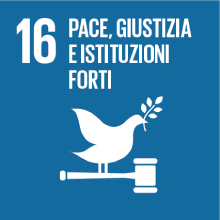LINGUA CINESE CLASSICA
- Anno accademico
- 2019/2020 Programmi anni precedenti
- Titolo corso in inglese
- CLASSICAL CHINESE LANGUAGE
- Codice insegnamento
- LM014I (AF:316053 AR:166374)
- Lingua di insegnamento
- Italiano
- Modalità
- In presenza
- Crediti formativi universitari
- 6
- Livello laurea
- Laurea magistrale (DM270)
- Settore scientifico disciplinare
- L-OR/21
- Periodo
- II Semestre
- Anno corso
- 1
- Sede
- VENEZIA
- Spazio Moodle
- Link allo spazio del corso
Inquadramento dell'insegnamento nel percorso del corso di studio
Risultati di apprendimento attesi
Alla fine del corso gli studenti avranno letto, tradotto e discusso brani tratti da vari testi, e svilupperanno le competenze analitiche per condurre ricerca autonomamente, acquisendo familiarità con le fonti consultate.
Prerequisiti
Contenuti
Il corso fornirà agli studenti la conoscenza e le competenze necessarie per leggere e analizzare i brani tratti dai testi classici filosofici e rituali sul perfezionamento del sé e il pensiero politico della Cina classica. I testi confuciani insistono sull'educazione morale dell'individuo, i testi taoisti enfatizzano le pratiche fisiologiche e dietetiche.
Principali Fonti utilizzate: Daxue 大學, Zhongyong 中庸, Zhuangzi 莊子, Baopuzi 抱仆子 e i commentari classici e moderni.
Lo studente sarà guidato nella traduzione e nella lettura dei commentari e acquisirà gli strumenti per proporre la propria interpretazione del testo per la discussione in classe, e infine sceglierà un argomento da sviluppare in una tesina finale di 5-7 pagine.
Struttura e argomenti del corso:
1. INTRODUCTION
Introduction to the course. The Four Books and their role in the transmission of Chinese culture in Europe. Main contents of the Four Books (sishu 四書) and in particular of the Daxue and the Zhongyong.
2. DICTIONARIES AND TOOLS
Dictionaries, encyclopedia and tools for sinological research
Introduction to the Zhongyong 中庸and the Daxue 大學. The Zhongyong and the Daxue through the lenses of the Jesuit missionaries. Their understanding and their interpretation
3. THE ZHONGYONG AND ITS LATIN TRANSLATIONS
Zhongyong 中庸 translation and interpretation by Zhu Xi, Zhang Juzheng 張居正 and Prospero Intorcetta
4. THE ZHONGYONG
Zhongyong 中庸: translation and interpretation by Zhu Xi, Zhang Juzheng 張居正 and Prospero Intorcetta
5. THE DAXUE AND ITS LATIN TRANSLATIONS
Daxue 大學 Reading, translation, exegesis of the Daxue 大學 and is modern commentaries, chs. 1-2
6. THE DAXUE AND ITS COMMENTARIES
Daxue 大學Reading, translation, exegesis of the Daxue 大學 and its commentaries, chs. 3-4-5
7. THE DAXUE AND ITS MODERN COMMENTARIES
Daxue 大學Reading, translation, exegesis of the Daxue 大學and its modern commentaries, chs. 6-7-8
Self cultivation in Daoist texts: readings from the Zhuangzi 莊子
8. DAXUE: READING AND TRANSLATION
Daxue 大學Reading, translation, exegesis of the Daxue 大學and its modern commentaries, chs. 6-7-8
9. DAXUE: READING AND TRANSLATION
Daxue 大學Reading, translation, exegesis of the Daxue 大學and its modern commentaries, chs. 8-9-10-11
Self-cultivation in Daoist Texts: readings from the Baopuzi neiye 抱仆子內篇
10. SELF-CULTIVATION IN TAOIST TEXTS
Self-cultivation and immortality in Taoist Texts: readings from the Zhuangzi 莊子
Daxue 大學Reading, translation, exegesis of the Daxue 大學and its modern commentaries, chs. 10-11-12-13
11. SELF-CULTIVATION IN TAOIST TEXTS
Self-cultivation and Immortality in Taoist Texts: readings from the Zhuangzi 莊子
Daxue 大: Reading, translation, exegesis of the Daxue 大學and its modern commentaries, chs. 14ff.
12. BAOPUZI NEIPIAN
Self-cultivation and Immortality in Taoist Texts: readings from the Baopuzi neiye 抱仆子內篇
13. BAOPUZI NEIPIAN
Self-cultivation in Taoist Texts: readings from the Baopuzi neiye 抱仆子內篇
14. BAOPUZI NEIPIAN
Self-cultivation in Taoist Texts: readings from the Baopuzi neiye 抱仆子內篇
15. Discussion on the program and presentation by the students
Testi di riferimento
Chen Shengxi 陈生玺, ed., Zhang Juzheng jiangping. Daxue, Zhongyong 张居正讲评。大学,中庸, Shanghai, Cishu chubanshe, Shanghai 2007.
Li Jingde 黎靖德, ed., Zhuzi yulei 朱子語類, Zhonghua Shuju, Beijing 1986.
Li Xiangfeng 黎翔鳳, Liang Yunhua 梁運華, eds., Guanzi jiaozhu 管子校注, Zhonghua shuju, Beijing, 2004.
Li Zehou 李泽厚, Lunyu jinyi 论语今读 (Reading the Analects today), Sanlian shudian, Beijing 2004
Zhu Xi 朱喜, Sishu zhangzhu jizhu 四書章句集註, Zhonghua shuju, Beijing, 1996.
Zhongyong, La Costante pratica del giusto mezzo, a cura di T. Lippiello, con testo a fronte, Marsilio, Venezia, 2010
Studi
A. Andreini, “The meaning of qing in texts from Guodian tomb. No.1, in P. Santangelo, D. Guida, eds., Love, Hatred and Other Passions. Questions and Themes on Emotions in Chinese Civilization, Brill, Leiden, 2006, pp. 149-165.
Confucio, Dialoghi, a cura di T. Lippiello, testo a fronte, Einaudi, Torino 2003 (rist. 2006)
M. Csikszentmihàlyi, “Ethics and Self-cultivation Practice in Early China”, in J. Lagerwey, M.
Kalinowski, Early Chinese Religion. Part One: Shang through Han (1250 BC-220 AD), Brill, Leiden, 2009, pp. 519-542.
T. Lippiello, “Pensiero e religion in epoca Zhou”, in T. Lippiello e M. Scarpari, a cura di, La Cina. Dall’età del Bronzo all’impero Han, Einaudi, Torino 2013, pp. 573-532.
Idem, “Self-cultivation and Longevity Techniques: Towards the Xian Cult of Qin and Han Times”, Asian and African Studies, volume XI, 1-2, 2007, pp. 99-115.
Idem, “A Confucian Adage for Life: Empathy (shu) in the Analects”, in R. Malek, G. Criveller, ed. by, Light a Candle. Encounters and Friendship with China. Festschrift in Honour of Angelo S. Lazzarotto P.I.M.E., pp. 73-98.
Idem, Le droghe dell’immortalità nell’antichità cinese e il Taishang lingbao zhicao pin, Venezia, Cafoscarina 2007.
Idem, a cura di, La costante pratica del giusto mezzo, Marsilio, Venezia 2010
D. S. Nivison, “The Classical Philosophical Writings”, Cambridge University Press, Cambridge 1999.
Poo Mu-chou, “Ritual and Ritual Texts in Early China”, in J. Lagerwey, M. Kalinowski, ed.by, Early Chinese Religion. Part One: Shang through Han (1250 BC-220 AD), Brill, Leiden, 2009, pp. 281-314.
M. Scarpari, “The Debate on Human Nature in Early Chinese Confucian Literature”, Philosophy East and West, 53/3, 2003, pp. 323-339.
Dictionaries
Grand dictionnaire Ricci de la langue chinoise, Instituts Ricci, Paris-Taipei, 2001.
Gudai hanyu cidian 古代汉语词典, Shangwu yinshuguan, Beijing, 2007.
Hanyu da cidian, Hanyu dacidian chubanshe, Shanghai 1994.
P. Kroll, A student’s dictionary of classical and medieval chinese, Brill, Leiden 2014.
Le Grand Ricci numèrique: dictionnaire encyclopédique de la langue chinoise, (versione informatica e aggiornata del Grand dictionnaire Ricci de la langue chinoise, Association Ricci e Descléè de Brouwer, Paris, 2001, 6 voll.), Association Ricci, Paris, 2010. The Grand Ricci is available on iOS (iPhone, iPad) and Android devices (smartphones and tablets) as a module of the well known (free) Pleco Dictionary that can be bought as an in-app add-on. This "Grand Ricci" module includes the entire content of the Dictionary.
Zhongwen da cidian, Zhongguo wenhua daxue chubanbu, Taipei 1973. La consultazione del Grand Ricci Online è possibile per tutti gli studenti di Ca’ Foscari:
Link diretto: http://chinesereferenceshelf.brillonline.com/grand-ricci
Il dizionario è accessibile anche dal catalogo delle banche dati: http://www.unive.it/nqcontent.cfm?a_id=32451
Testi obbligatori:
M. Scarpari, Avviamento allo studio del cinese classico, Venezia, Cafoscarina, 1995.
Modalità di verifica dell'apprendimento
Modalità di esame
Metodi didattici
Obiettivi Agenda 2030 per lo sviluppo sostenibile
Questo insegnamento tratta argomenti connessi alla macroarea "Cooperazione internazionale" e concorre alla realizzazione dei relativi obiettivi ONU dell'Agenda 2030 per lo Sviluppo Sostenibile


